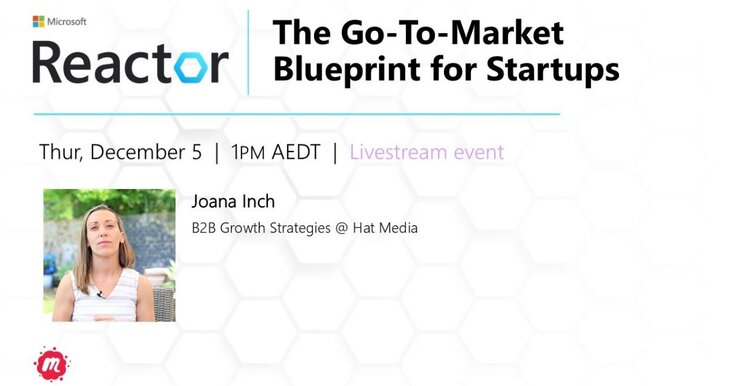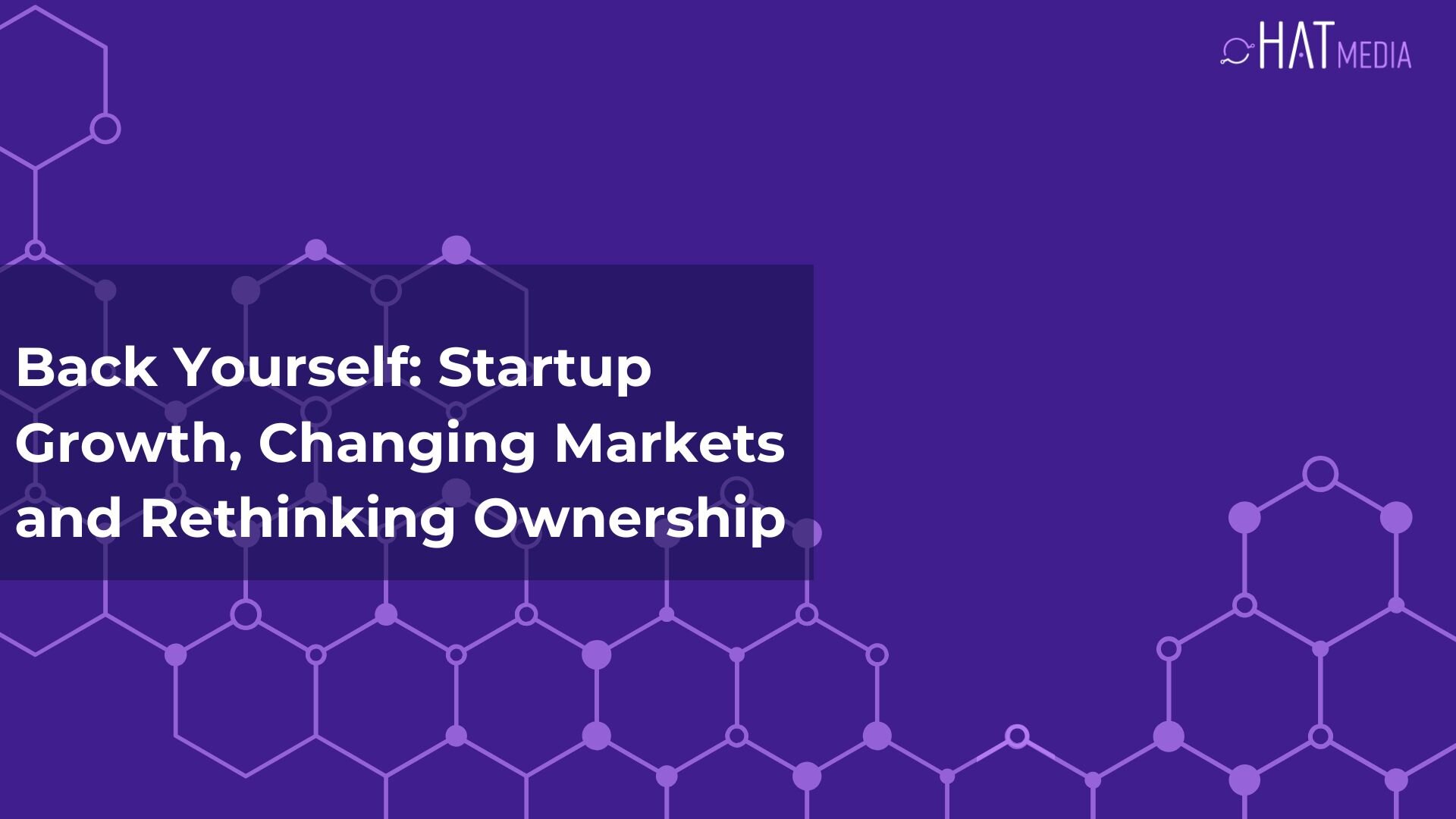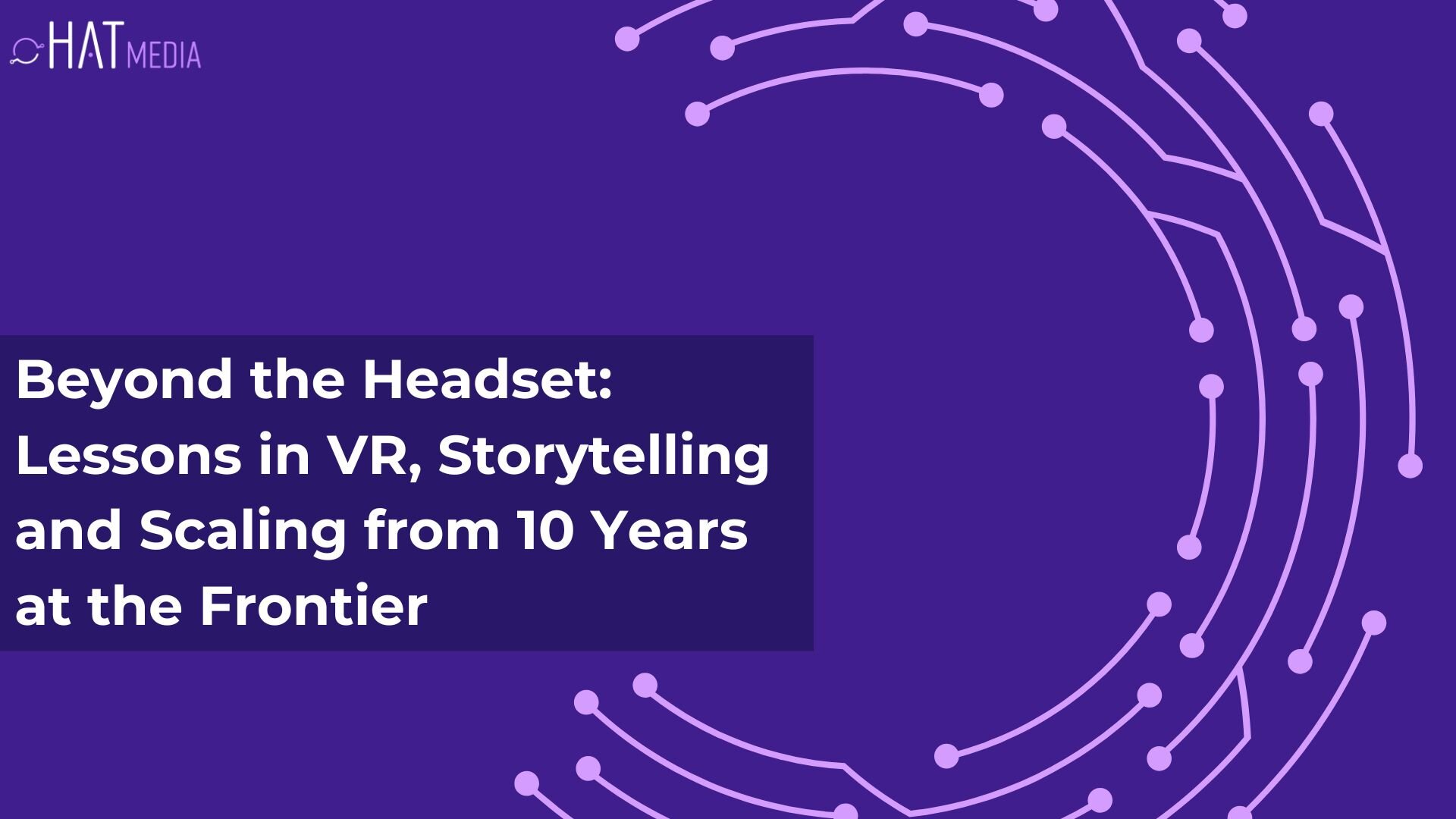From Startup to Scale-Up: Go To Market Secrets from Joana Inch's Microsoft Reactor Webinar

Startups often face a dual reality—boundless potential paired with daunting challenges. The key to unlocking sustainable growth lies in a well-executed Go-To-Market (GTM) strategy. In her latest Microsoft Reactor webinar, Joana Inch, author of the best-selling Go To Market, shared actionable advice and proven frameworks for startups aiming to scale effectively.
This session was more than just a talk; it was a masterclass in crafting GTM strategies that align with real-world challenges and opportunities. Packed with practical insights, it offered startups a clear path to building scalable processes, leveraging technology, and connecting with the right customer segments.
Here’s a breakdown of the key takeaways from Joana's webinar, designed to help your startup move from surviving to thriving.
The Core of a Winning GTM Strategy
Joana kicked off the webinar by emphasising the importance of starting with a solid foundation. "Your GTM strategy isn’t just about going to market; it’s about staying there and growing," she explained. For startups, this means developing a clear understanding of your target audience, value proposition, and market dynamics.
Key Questions to Answer:
- Who is your ideal customer?
- What problem does your product solve, and why should they care?
- How will you reach your audience efficiently and at scale?
Joana’s advice mirrors the principles in her book, Go To Market, where she emphasises that a GTM strategy should evolve as your business grows, adapting to new opportunities and challenges.
Watch the Webinar: Insights You Can’t Miss
Whether you’re crafting your first GTM strategy or refining an existing one, this session provides actionable steps, practical examples, and proven frameworks.
What You’ll Learn:
- How to craft a GTM strategy tailored to your market.
- Practical tips for aligning sales and marketing teams for maximum efficiency.
- The role of technology in driving scalable growth.
Top Takeaways from the Webinar
1. Nail Your Positioning First
Joana stressed that startups often jump into tactics like sales and marketing without refining their positioning. In her words, "Your product’s value is only as strong as your ability to communicate it." To position effectively, focus on:
- Understanding your customers’ pain points deeply.
- Articulating your unique value in a way that resonates.
- Differentiating yourself from competitors in a meaningful way.
Joana shared an example of a SaaS startup that struggled with growth until they redefined their value proposition to focus on a specific niche. This pivot led to a 40% increase in customer acquisition within months.
2. Align Sales and Marketing for Seamless Growth
One of the standout moments of the webinar was Joana’s focus on the often-overlooked synergy between sales and marketing. For startups, these functions must work together to ensure consistent messaging and a smooth customer journey.
Joana’s Practical Tips:
- Create Unified Goals: Define KPIs that both sales and marketing teams are accountable for, such as lead conversion rates or pipeline velocity.
- Integrate Technology: Use tools like HubSpot or Salesforce to bridge gaps and provide both teams with shared insights.
- Schedule Regular Check-ins: Weekly syncs ensure alignment on priorities and allow teams to share feedback on what’s working.
This alignment not only drives efficiency but also ensures that customers experience a cohesive journey from first contact to post-sale support.
3. Leverage Technology Wisely
Joana made it clear that the right tools can make or break your scaling efforts. Technology should simplify your workflows, not complicate them. She broke it down into three essential categories:
- CRM Systems: Tools like Salesforce or HubSpot are critical for tracking customer interactions and managing your pipeline.
- Marketing Automation: Platforms like ActiveCampaign or HubSpot streamline repetitive tasks like email campaigns, allowing your team to focus on strategy.
- Analytics Tools: Tableau and Mixpanel provide actionable insights into customer behaviour, helping you refine your approach based on data.
Joana shared a case study of a healthcare startup that implemented automation tools to reduce lead response time by 30%, resulting in higher conversion rates and improved customer satisfaction.


